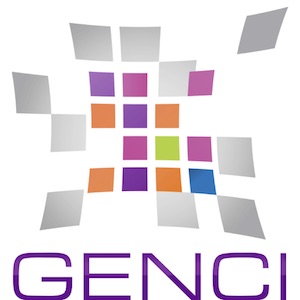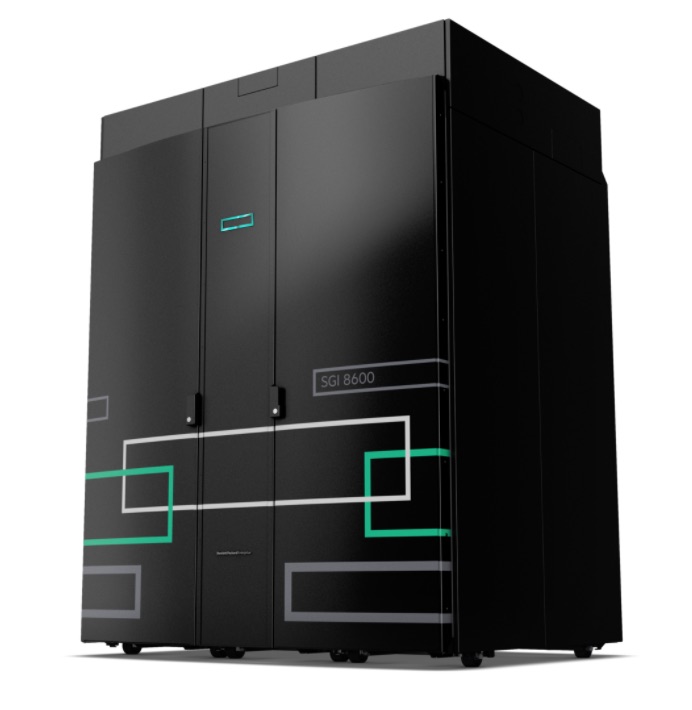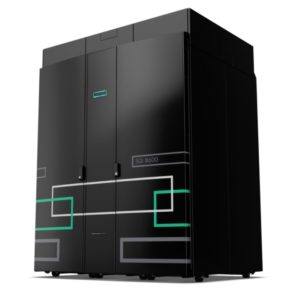 HPE is building a new Ai supercomputer for GENCI in France. Called Jean Zay, the 14 Petaflop system is part of an artificial intelligence initiative called for by President Macron to bolster the nation’s scientific and economic growth.
HPE is building a new Ai supercomputer for GENCI in France. Called Jean Zay, the 14 Petaflop system is part of an artificial intelligence initiative called for by President Macron to bolster the nation’s scientific and economic growth.
By empowering the nation’s robust pool of talent with powerful compute technologies that target various, AI and analytics applications we see emerging, we believe France has the potential to be a driving force of AI efforts for the European market. At Hewlett Packard Enterprise, we continue to fuel the next frontier and unlock discoveries with our end-to-end HPC and AI offerings that hold a strong presence in France and have been further strengthened just in the past couple of years.
The initiative includes the HPE Artificial Intelligence Marketplace, a first-of-its-kind ecosystem in France of AI hardware and software solution providers for start-ups and enterprises, and the HPE HPC and AI Center of Excellence in Grenoble, a center of HPC and AI experts and tools to accelerate time-to-market of new products.
Once installed, the Jean Zay system will nearly double the supercomputing capacity of France.
The Jean Zay supercomputer will focus on research across fundamental physical sciences such as particle physics and cosmology, and biological sciences, to foster discoveries in fusion energy, space exploration and climate forecasting while also empowering applied research to optimize areas like combustion engines for automobiles and planes, pharmaceutical drugs, and solutions for natural disasters and disease pandemics.
Supercomputing has tremendous potential to accelerate innovation in AI for public and private sectors here in France and we are building a fast, powerful machine for GENCI to become France’s leading supercomputing research and development center for AI. With Jean Zay, we are enabling researchers to power faster, improved simulations like simulated events that can impact a nation’s environment, such as forest fires or a major earthquake’s aftershock. Detailed insight like this helps inform decision-makers to implement preventative tactics for more sustainable infrastructure that can reduce risks of destruction and fatalities.
The system will be open to France’s research communities to power scalable HPC and AI workloads, and lay a foundation for developing new methods to unlocking insight from larger, complex data, whether it be from physical particle samples or sensory data from IoT-enabled machines.
Jean Zay will have a peak performance of 14 petaFLOPS and will be based on the HPE SGI 8600, a purpose-built high-performance computing (HPC) platform. It will converge the following powerful HPC and AI technologies to support machine learning and AI applications, along with improvement to traditional HPC workloads like modeling and simulation:
- CPU and GPU Parallel Computing: To run various compute processors in parallel with up to four 100 Gbs links per node, HPC is using a single HPC interconnection network
- Intel Omni-Path Architecture: powering 1,528 nodes of Intel Xeon Scalable processors for scalable compute performance and 261 nodes with 4 latest NVIDIA Tesla V100 32GB GPUs per node, for a total of 1044 GPUs.
- Faster Simulation with Flash Storage Technology: A read/write capacity of more than 300 GB per second will power faster simulations by integrating innovative flash storage capabilities with the HPE SGI 8600, an end-to-end HPC system, with support from DataDirect Network solutions.
- Improved Rendering Time with Cooling DLC (Direct Liquid Cooling): Through an HPC cooling solution, Jean Zay’s computing power is optimized to enable faster rendering times for simulations while also reducing energy consumption.
Jean Zay will be installed at the IDRIS in June 2019 and put into production use by October 2019.





